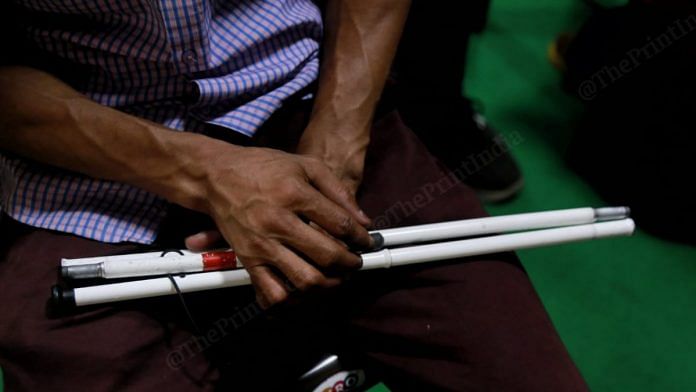In ‘Digital India’, anyone can get a bank account — except people with disabilities. Vidya Anand, mother of a 21-year-old son with autism who lives in Bengaluru, recently approached the Canara Bank to open an account for him. But the bank officials refused her request, saying her son is ‘not normal’. The bank manager told Vidya about a Reserve Bank of India guideline, which he claimed prohibits people with autism to have a bank account.
When Vidya asked for more information, the official rudely told her that they open accounts only for ‘Divyang’, which the bank meant for blind people and not others. It was only after local journalists and activists intervened that the bank manager tendered an apology and took steps to open an account for Vidya’s son.
This is not an isolated incident. People with disabilities face problems at every step of the way — from opening an account to getting an ATM card or a cheque book. They have to face physical/infrastructural barriers at the banks as well as digital barriers because of the inaccessible mobile banking apps and internet banking. Most importantly, attitudes of banking officials who often harass them is a major barrier.
RBI guidelines make it very clear that banks should provide doorstep services to people with disabilities and senior citizens, but the reality is grim. Section 13 of the Rights of Persons with Disabilities Act, 2016 makes it clear that the government must ensure that the disabled have equal rights as others to own or inherit property, movable or immovable, control their financial affairs and have access to bank loans, mortgages and other forms of financial credit. But the banking officials presume people with disability are incapable of taking any financial decision on their own, even as basic as holding an account.
Accessibility in banking facilities is crucial for financial inclusion of people with disabilities. The government’s laudable objective of striving for a digital economy and going cashless cannot be achieved when banks refuse to issue ATM cards and cheque books to people with disabilities. It is now imperative to make banking accessible because most of the states transfer the funds directly to the beneficiary’s account.
Also read: How many people with disabilities have a driving licence in Tamil Nadu?: A story in 79 RTIs
Inclusivity is crucial
This perennial problem could be solved only if banks start following RBI guidelines scrupulously. There should be widespread awareness campaigns and sensitisation training for banking officials about these guidelines and to bring about attitudinal changes.
Every branch and ATM centre must be made accessible with ramps wherever possible for wheelchair users. Time and again, the chief commissioner for persons with disabilities, a post that falls under the Ministry of Social Justice and Empowerment, has recommended banks to provide facilities including ATM cards/cheque books/locker facilities, etc. to visually impaired who are predominantly denied access over claims that these could be misused by others.
Banks are also advised by the RBI to provide talking ATMs with braille keypads. For people with cerebral palsy, autism or mental illness, a legal guardianship certificate issued by the competent authority is given for opening/operating bank accounts. But bank officials, without any application of mind, mechanically started insisting on appointing a guardian for all mentally ill persons irrespective of mental capacity. The RBI again clarified that “it would be necessary for banks to seek appointment of a guardian only in such cases where they are convinced on their own or based on documentary evidence available, that the concerned person is mentally ill and is not able to enter into a valid and legally binding contract”. Further, the Rights of Persons with Disabilities Act, 2016 provides only for a limited guardianship and encourages a person with disability to be more autonomous.
Apart from the already existing customer service committee, which usually does not have a person with disability, every bank should have a small team comprising the bank manager, one banking official and a person with disability who holds an account with the branch to monitor implementation of these guidelines, conduct access audits of the branch and to make banking service inclusive and accessible for all. This small group can also undertake feedback from its customers on accessibility issues and improve to provide better customer services.
Karpagam Mayavan is the first female visually challenged Advocate at the Madras High Court. Views are personal.
(Edited by Prashant)



